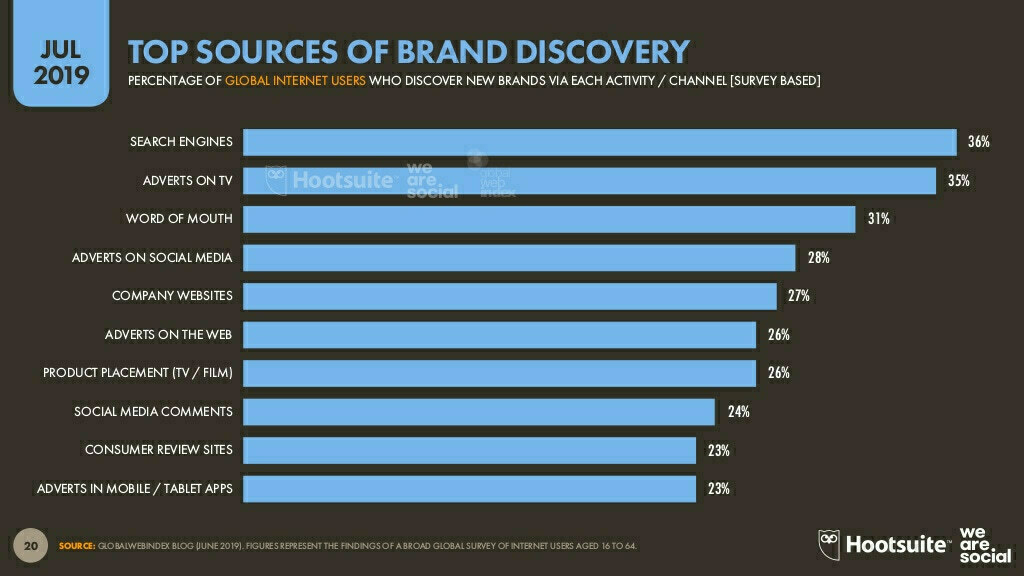Digital Transformation and natural disasters
Customers 2.0 and the importance of word of mouth
In trying to be brief and to simplify the customer’s journey to buying products in modern times, I think I may have not been as clear as I could have, which led to some confusion:
This affects how customers behave in their consumption and how they discover new things. Here in the Caribbean, word of mouth is still a strong discovery tool, but it is becoming less and less relevant when we’re consuming more products and services online. The search engine has rendered word of mouth a secondary validation tool. Today, customers search first, then ask peers and online forums for recommendations.
In this badly worded paragraph, I was trying to put forward the idea that, as the internet takes a more central role in the research and decision-making process to buying products and services, the order in which people are using tools is changing.
Word of mouth is an extremely important tool in the Caribbean, and one could argue that it is the most valuable tool to help people make up their minds. Communities here, are very close and much value is placed upon the sharing of information about purchases and experience. But that doesn’t mean it is the first port of call either.

Source: datareportal.com
In my research over the last few years, most businesses and business owners I have talked to have stated that their business grew from word of mouth more than marketing. Obviously anecdotal and unquantified, but it’s at least the impression and that is an important data point in and of its own. But discovery is being done online, that’s the key message.
So to clarify, I’m seeing people in the Caribbean researching online for products and services more frequently through forums like Reddit and Facebook (1) — remember that in the Caribbean the average time spent on a Reddit page after being opened is 10 minutes, just behind Facebook with 15 minutes— then talking to peers to get a more “valuable” review of the product or service. Certainly, some of this is done face-to-face as you would expect, but the relatively new an interesting extra dynamic, is that an increasingly larger amount of word-of-mouth is being done using digital platforms too!
Why is this? Two main factors seem to be in play here; we’re more physically separated and we request answers fast and at any time of the day.
Digital Transformation and natural disasters
Writing this as Tropical Storm Dorian is about to pass over the Lesser Antilles, somewhere south of St Lucia, I got thinking about how a coordinated effort by all stakeholders could help with preparing, living through and the aftermath of natural disasters like hurricanes and earthquakes that are so prevalent here in the Caribbean.
The states, the insurance companies, the retailers and the population, if coupled together well, could provide and use services that would make everyone’s job just that much easier, reducing time to get claims acted up, get money out there immediately and reduce costs for everyone involved.
Like me (yeah right!), I’m sure you’re diligently documented all your items of value that would need to be replaced in the event of a major storm, or that you even know where everything is and how much it cost, its insurance value, etc, etc.
There is opportunity to build out systems that allow — from the point of sale — relevant information to flow to a secure vault in the cloud that you can use for claims. You buy a new fridge-freezer, its model number, serial number, sale price, are all pushed from the retailer to the vault. You allow your insurer to have access to this to insure you correctly. A simple app on a smartphone could start the claim process immediately as virtually no information gathering would need to be done (something that can take a long time whilst living through the disaster).
Having more detailed information could allow insurance companies to better estimate their liabilities and free up money when and where its most needed immediately following the hurricane.
This is, of course, the dream and like we’ve seen with all positive initiatives, there are negatives to consider too, but even half of this wish cast Would be a great help to individuals in our region.
If you haven’t read the earlier articles in the series, I encourage you to do so to get a better overall picture of the methodology. I’ve included an index here for you convenience:
Part 1 - Auditing your current state
Part 5 - Turning data into business value
Part 6 - The 5 step Digital Transformation methodology
Part 7 - Segmentation and targeting
Part 8 - The Value Proposition
Admittedly, Part 6 should have been Part 1 in hindsight … You live and learn :-)
The Future is Digital Newsletter is intended for anyone interesting in learning about Digital Transformation and how it affects their business. I strongly encourage you to forward it to people you feel may be interested.
If this email was forwarded to you, I’d love to see you onboard, please sign up here:
Remember, you can read all the archives here:
Thanks for being a supporter, have a great day.
––––––––––––––––––––––––––––––––
1 From Hootsuite/wearesocial report Digital in 2018